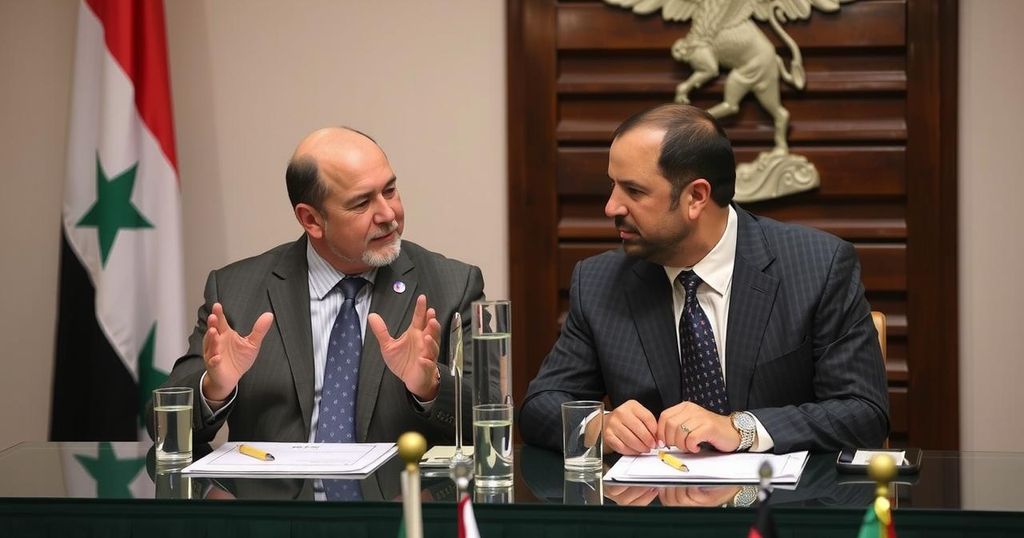Syria’s new leader, Ahmed al-Sharaa, has pledged to refrain from negative interference in Lebanon’s affairs, signaling a shift in regional dynamics following his ascension to power. He met with Lebanese leaders to discuss Syria’s respect for Lebanon’s sovereignty. This comes as Syria strengthens ties with Turkey and Saudi Arabia amid international engagement, raising questions about the future of the region’s security and stability.
In a recent conference, Syria’s new leader Ahmed al-Sharaa assured that his administration will refrain from negatively interfering in Lebanon’s internal affairs. This assertion came shortly after he established a strong regional presence following his ascension to power. Following the recent takeover of Damascus by his Islamist faction, Hayat Tahrir al-Sham, Sharaa engaged in discussions with Turkish Foreign Minister Hakan Fidan, who had provided crucial support during his military offensive to oust Bashar al-Assad.
In his meeting with Lebanese Druze leaders Walid and Taymur Jumblatt, Sharaa emphasized Syria’s commitment to respecting Lebanon’s sovereignty and security. He acknowledged the previous detrimental influence Syria had exerted over Lebanon and pledged that his nation would adopt a neutral stance regarding all Lebanese factions. This approach represents a significant shift from Syria’s historical involvement in Lebanon, which included prolonged military presence and political manipulation.
The presence of various foreign powers, particularly Turkey and Saudi Arabia, in the region demonstrates a growing interest in Syria following the regime change. The Iranian leadership also recognized the emergence of a new authority in Syria, while maintaining the importance of armed groups in the region. This evolving dynamic reflects a broader geopolitical contest within the Middle East.
Notably, debates around the implications of HTS’s rise and its labeled status as a terrorist organization by multiple governments continue, with global powers advocating for the protection of women’s rights and minority groups under the new regime. Such discussions underscore the international community’s vested interest in fostering stability and limiting extremist influences in the region.
In December 2023, Syria experienced a regime change when Ahmed al-Sharaa’s Islamist faction, Hayat Tahrir al-Sham (HTS), ousted long-time leader Bashar al-Assad amid extensive regional engagement from various international actors. This transition is significant as it alters the political landscape of both Syria and Lebanon, where historical ties and conflicts have shaped their interactions for decades. The Druze community, prominent in Lebanon and Syria, exemplifies the complexities of these relationships, particularly in the wake of Syria’s military interventions in Lebanon since 1976. As new leadership emerges, concerns regarding the ramifications for Lebanon’s sovereignty and regional security must be addressed, given the longstanding fear associated with Syrian influence.
The statements made by Syria’s new leader, Ahmed al-Sharaa, signify an important shift in the nation’s policy towards Lebanon, with a commitment to respecting its sovereignty and avoiding past interferences. As regional powers engage with the new regime, the ramifications of HTS’s involvement remain a critical focus for both domestic security and international relations in the region. Moving forward, establishing a balanced approach that prioritizes stability and protects minority groups will be essential for Syria’s new leadership as it navigates its complex geopolitical landscape.
Original Source: www.hindustantimes.com






